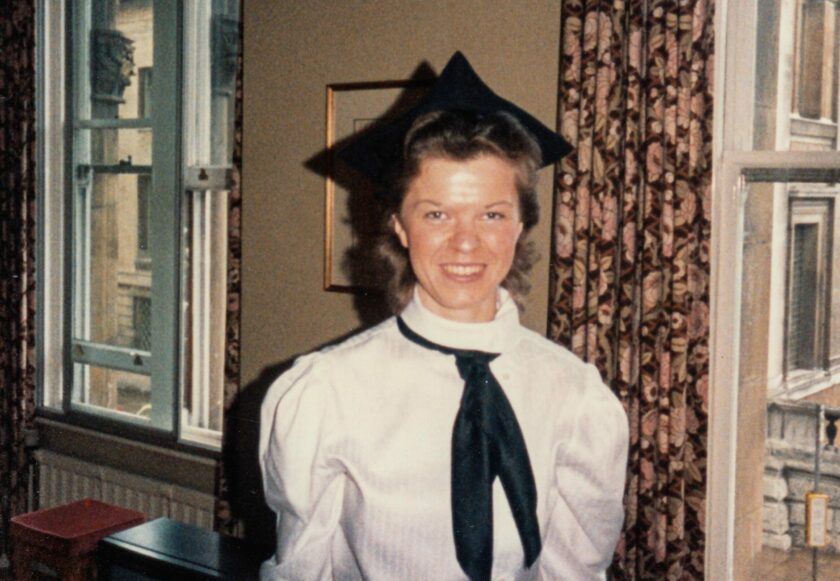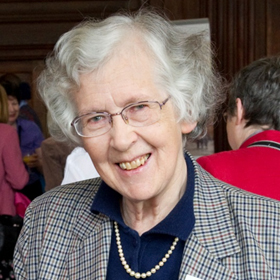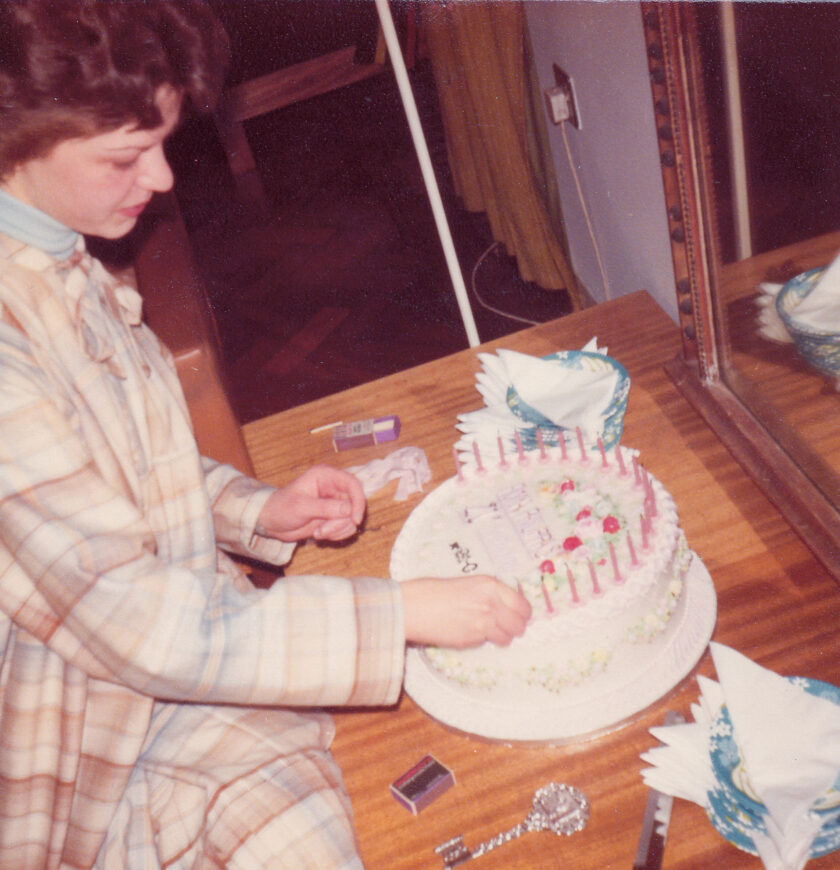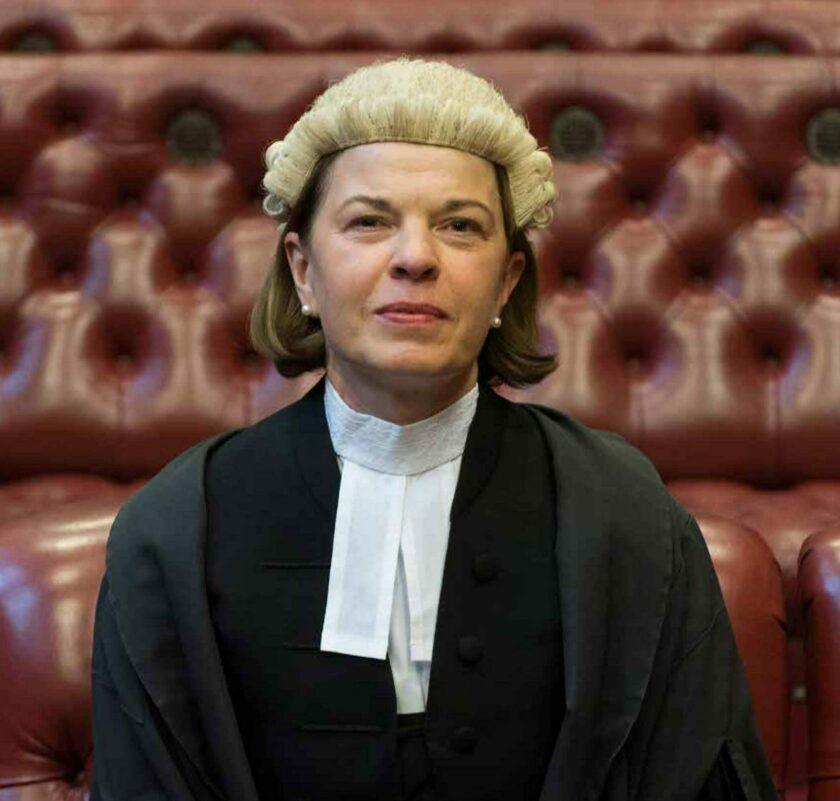Philippa Tudor was one of the first two female Clerks in the House of Lords, with roles including HR and Finance Director before serving as Clerk of Committees. In 2023, she was made a CBE for services to Parliament. She is a first-generation student who came to Somerville from a non-selective school aged 17, and reflects here on the formative influence of her time at Somerville before sharing some tips for today’s prospective applicants.
It Doesn’t Matter Where You Went to School
I went to a non-academic girls’ school where few pupils went to university. I think the only teacher at my school who had been to Oxford was my history teacher, Diana Handford. She had been to Somerville and encouraged me to apply there. I was starting from a position of huge ignorance which I think helped me: I didn’t know how much I didn’t know! That’s why I often tell people worrying about their chances of getting into university just to go for it. You’ll never know unless you try.
Follow Your Passion
I’m unusual in that I knew the topic on which I wanted to do historical research at the age of 15. Mine was the first year to study ‘gobbets’ at A Level – extracts from primary sources, in this case from the Tudor period. I was instantly hooked. Throughout my childhood, I had wanted to understand how my family contained two very different Christian traditions (my mother came from a Mauritian Roman Catholic background whilst my father’s background was Primitive Methodist). I wanted to study the Reformation in terms of what people were reading at the time. My A level history course was so wonderful that, for the first few weeks, I kept thinking there must be some unpleasant part of the course I was missing. Surely it shouldn’t be this enjoyable?

Finding her voice: Philippa Tudor on her DPhil graduation day
When I came up for interview at the age of 16, I found myself surrounded by lots of girls from the academic London Day schools, among whom I felt very out of place. I must have been a year or two younger than most of them, and didn’t have their fashionable clothes or easy self-confidence. My feelings of inadequacy were heightened by a disastrous second interview, which I was convinced I had failed. And yet, when I got back home to Scotland, I found my offer letter there waiting for me. The lesson here is don’t rule yourself out based on your own self-image: let the experts decide if you should have a place. In my case, I was fortunate enough to be interviewed by the mediaeval historian Barbara Harvey and then-Principal Barbara Craig, who was always wonderful to me.
A Good Tutor Can Change Your Life

Philippa Tudor’s former tutor and our Honorary Fellow, Barbara Harvey CBE
Since the day we met, my former tutor Barbara Harvey has been my model for an intellectual life well-lived. She was academically brilliant, of course, but she was also unstintingly kind. I can recall countless occasions in which these two qualities shone through: the extra tutorials she gave me on subjects in which I was interested, such as Gothic architecture, and the tutorials she arranged to fill the various gaps in my knowledge. However, the incident that best captures the transformative impact of Barbara as a tutor occurred during my first week at Somerville. Back then, first-year historians were required to be examined in two foreign languages, usually French and Latin, at the end of their first term. I was delighted to learn that Barbara had arranged weekly Latin lessons for us all. One of my new friends, however, objected on the grounds that her Latin was already good – which it was. Barbara simply replied, ‘No one’s Latin is so good that it can’t do with improving.’ For someone so kind, this was unusually firm. But underlying that firmness was a quiet defence of the humility which Barbara felt was an essential precondition of all true academic work. In that simple statement lay the idea that where we come from and what we know are less important than our ability and willingness to learn.
Don’t Let Fear Defeat You
There was a moment about halfway through my time as an undergraduate when I realised that, if I kept worrying about self-confidence, I wouldn’t get the degree result I needed. I had to decide to get over it, or give up my aim of pursuing historical research. Of course, I didn’t start to feel self-confident straightaway. But in time, surrounded by newfound friends and my Somerville tutors, I became more outspoken, worried less and was able to pursue my research ambitions. At the start of my degree, I never would have believed you if you told me that one day I’d be the first female Clerk to sit at the Table in the House of Lords, or help set up the Houses of Parliament’s first ever website, ushering in a new age of transparency to this ancient institution. So that’s the final lesson Somerville taught me: don’t let your fear hold you back.
You’ll Find Your Voice at Somerville

Philippa Tudor celebrating her 21st birthday in the Margery Fry building
Philippa Tudor on her 21st birthday (Thursday 15 February 1979) at Margery Fry House, Oxford. The tutorial system taught me how to write and articulate the knowledge I had, but it was during my DPhil studies that I really found my voice. A lot of this was due to the fact that Barbara Craig suggested I should be the one ‘Home’ student in the Margery Fry Building, which at that time was the first dedicated post-graduate accommodation in the university. This meant I was the only British girl among 23 international students and was responsible for showing these new students their way around. Being surrounded by so many brilliant students from all over the world, studying such a wide range of subjects, was – and is – part of what makes studying at Somerville such a wonderful experience. We really learned about each other’s cultures and ways of seeing the world. I became good friends with a Muslim physicist, which was my first experience of being close to the practice and observance of Islam. I also celebrated my 21st birthday in the MCR surrounded by my friends. I was even elected MCR President – an experience of political engagement that probably helped shape my future career working in Parliament, even if it demonstrated that actually standing for elections was not for me!
A Historian Shaping the Present
One thing Somerville seems to instil in all its students is the aspiration to use one’s learning to help others. This was communicated to us through a sort of osmosis, whether from hearing people talk about Somerville politicians from across the political spectrum – Prime Minister Margaret Thatcher and Shirley Williams both visited the college whilst I was there – or by seeing someone as famously brilliant as Dorothy Hodgkin walking across the Quad.
I never anticipated how my own love of history would translate into a career in public service, but my training as a historian has been fundamental to my effectiveness in the Lords. As a Clerk, a key part of my role was to advise individual members and committees. To advise on legislation you need not only to have a firm grasp of the Bill in question, including its context and likely obstacles in passing, but also to be trusted by members of all political stripes for those essential points of discussion and debate. To foster this level of trust, I had to call on all the skills of analysis, argument and debate that I learned back in my Somerville tutorials.
I have also had occasion to remember one of Barbara Harvey’s most important lessons about being a historian, which is that a good historian is constantly weighing up the truth of a situation, while accepting that there may never be a single authoritative version of that truth. There is almost always another side to an argument, particularly in parliamentary life. My training as a historian has been key to remaining nuanced, impartial and approachable whilst working in Parliament and as a public servant.

Philippa Tudor at the Table in the House of Lords Chamber as part of a book to illustrate diversity in Parliament